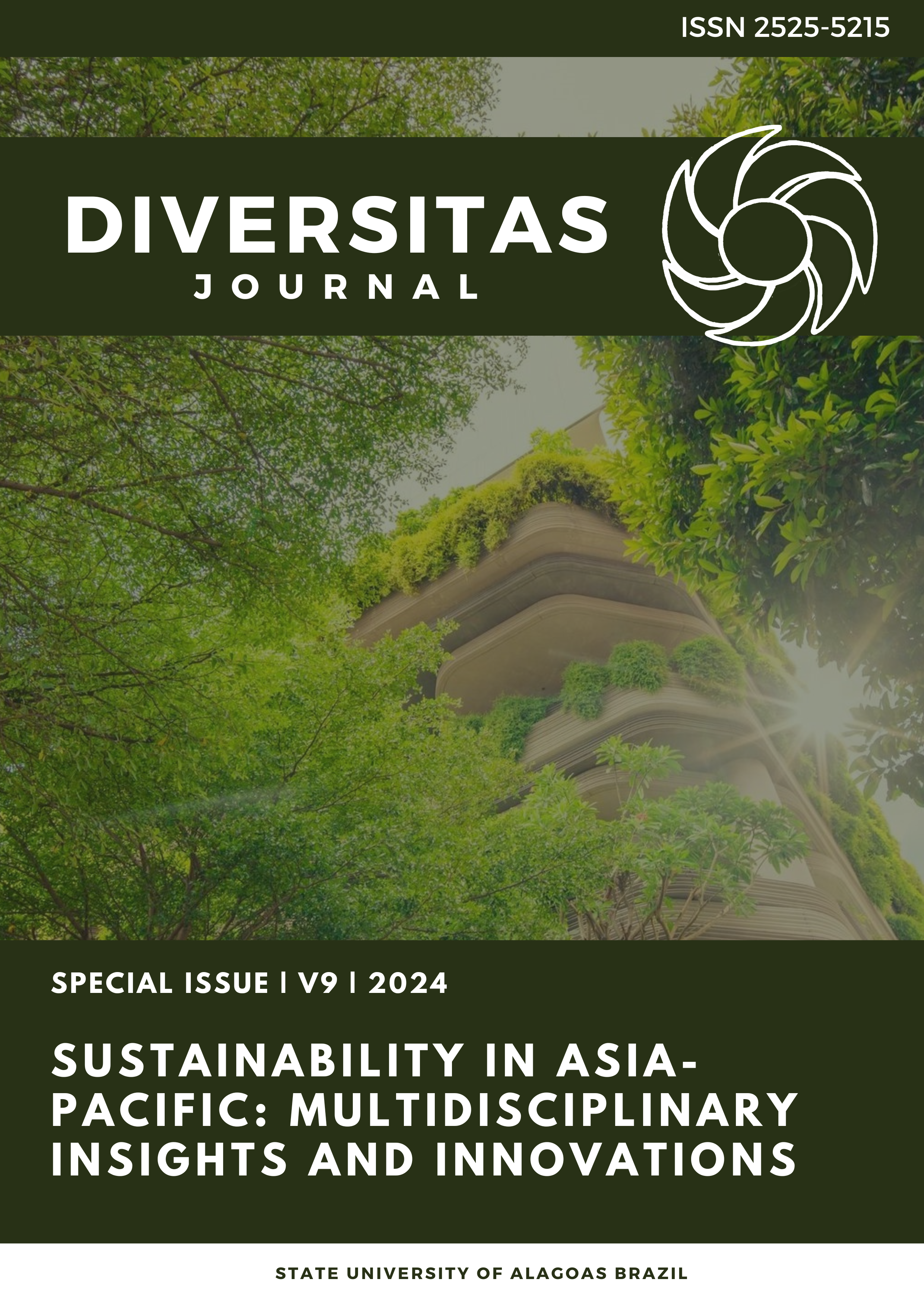Uma análise qualitativa das experiências transnacionais de Estados-membros selecionados da ASEAN em matéria de género e desenvolvimento
DOI:
https://doi.org/10.48017/dj.v9i1_Special.2878Palavras-chave:
revisão sistemática, desenvolvimento e gênero, Asia, empoderamento da mulherResumo
A ASEAN tem manifestado o seu apoio à igualdade de género e ao empoderamento das mulheres, formando comités e mecanismos regionais que os orientarão na consecução deste objectivo. Também lideraram várias reuniões com os seus estados membros e estabeleceram parcerias com outras organizações fora da ASEAN para melhorar ainda mais a sua resposta ao género e ao desenvolvimento. O seu objectivo é promover o género e o desenvolvimento com os seus três pilares para criar uma sociedade sensível ao género. Com base nos dados recolhidos, a comunidade LGBTQI+ e o setor das mulheres de todos os estados membros da ASEAN ainda estão a lutar para obter o apoio e a aceitação da ASEAN, bem como da maioria das pessoas, especialmente dos países centrados na cultura, mas apesar da sua luta eles permanecem positivos e esperam que em breve a sociedade os aceite de todo o coração. Pode haver desenvolvimentos, mas as dificuldades ainda são visíveis no seu trabalho e na sociedade, ainda não têm oportunidades de crescer nos domínios dominados pelos homens, ainda sofrem de tratamento desigual e alguns ainda não estão representados na política.
Métricas
Referências
ASEAN. (2020). What we do. Asean.org. https://asean.org/what-we-do
Buchhave, H., & Belghith, N. B. H. (2022, April 11). Overcoming barriers to women’s work in the philippines. World Bank Blogs. https://blogs.worldbank.org/eastasiapacific/overcoming-barriers-womens-work-philippines
Cheong, H., Lyons, A., Houghton, R., & Majumdar, A. (2023). Secondary qualitative research methodology using online data within the context of social sciences. International Journal of Qualitative Methods, 22, 160940692311801-160940692311801. https://doi.org/10.1177/16094069231180160
Gover, A. R., Harper, S. B., & Langton, L. (2020). Anti-Asian hate crime during the COVID-19 pandemic: Exploring the reproduction of inequality. American Journal of Criminal Justice, 45(4), 647–667. https://doi.org/10.1007/s12103-020-09545-1
Momsen, J., & Momsen, J. (2009, December 4). Gender and Development (2nd ed.). Routledge. https://doi.org/10.4324/9780203869628
Pryzgoda, J. & Chrisler, J. (2000, October). Definitions of gender and sex: The subtleties of meaning. Www.proquest.com. https://www.proquest.com/docview/225369068
Steans, J., & Tepe-Belfrage, D. (2016, July 29). Handbook on gender in world politics. Www.elgaronline.com; Edward Elgar Publishing. https://www.elgaronline.com/display/edcoll/9781783470617/9781783470617.00005.xml
Downloads
Publicado
Como Citar
Edição
Seção
Licença
Copyright (c) 2024 Michelle Lei Victorino, Mirabelle Agudo, Abbiegale Carpio, Carolin Schon

Este trabalho está licenciado sob uma licença Creative Commons Attribution 4.0 International License.
O periodico Diversitas Journal expressa que os artigos são de unica responsabilidade dos Autores, conhecedores da legislação Brasileira e internacional. Os artigos são revisados pelos pares e devem ter o cuidado de avisar da possível incidencia de plagiarismo. Contudo o plagio é uma ação incontestavel dos autores. A Diversitas Journal não publicará artigos com indicios de Plagiarismos. Artigos com plagios serão tratados em conformidade com os procedimentos de plagiarismo COPE.
A violação dos direitos autorais constitui crime, previsto no artigo 184, do Código Penal Brasileiro:
“Art. 184 Violar direitos de autor e os que lhe são conexos: Pena – detenção, de 3 (três) meses a 1 (um) ano, ou multa. § 1o Se a violação consistir em reprodução total ou parcial, com intuito de lucro direto ou indireto, por qualquer meio ou processo, de obra intelectual, interpretação, execução ou fonograma, sem autorização expressa do autor, do artista intérprete ou executante, do produtor, conforme o caso, ou de quem os represente: Pena – reclusão, de 2 (dois) a 4 (quatro) anos, e multa.”


















